Guides
Acts of ParliamentDevolved GovernmentHouse of CommonsHouse of LordsLegislative ProcessWhitehallPolitical PartiesThe Political Process Display All

Hereditary Peers
The 1999 House of Lords Act unseated all but 92 of the Peers who had inherited their right to sit in the House of Lords by birth. Of the current 92 hereditary peers, there are no female hereditary peers.Read More
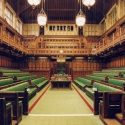
House of Commons – An overview
The dominance of the House of Commons is derived from its position as the only elected element of Parliament. As such, it can claim popular sovereignty as well as the right to rule. A generic overview of how the Lower Chamber of Parliament operates.Read More
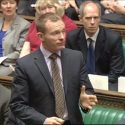
House of Commons Sitting Hours
When Parliament is sitting, the House of Commons normally meets on Mondays at 2.30pm and on Tuesdays, Wednesdays and Thursdays at 11.30pm. The length of the day is governed by the 'Moment of Interruption', the time when the Chair rises to put the questions that will dispose of the day's business.Read More

House of Lords – An Overview
The House of Lords is the second chamber of Parliament and is also called the Upper House. A short overview of its operations, membership, and history. Peers can receive a daily attendance allowance of £313, albeit some chose not to take the payment, or accept a reduced figure of £157.Read More
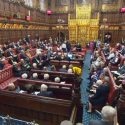
House of Lords Sitting Hours
When Parliament is sitting, the House of Lords normally meets on Mondays, Tuesdays and Wednesdays at 2.30pm and on Thursdays at 11.30am. The House of Lords does not always sit on a Friday but when it does it meets at 11am.Read More

Human Rights Act
The Human Rights Act ensures everyone is granted certain rights and freedoms, and is treated equally regardless of their identity. The Act has led to a number of high profile court decisions ranging from Hillsborough to the freedom of the press.Read More
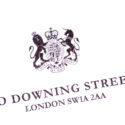
Kitchen Cabinet
The Kitchen Cabinet is the term used to refer to the advisers at Number 10 who form the so-called 'inner circle' around the Prime Minister. The term was first used to describe the coterie of political allies that formed around Harold Wilson led by the formidable Marcia Williams. Read More
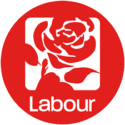
Labour Party
The Labour Party has been in power for just over a third of the period since the War. In 2019, the Labour Party had 485,000 members, making it by far Britain's largest political party. In terms of voting behaviour, the party currently polls better as a voter's level of formal education rises.Read More
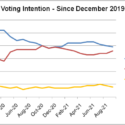
Latest Opinion Polls
The state of play with current UK opinion polls, how they have changed since 2019, and what the present levels of party support would mean at Westminster if a General Election was held today.Read More

Law Officers
Government Law Officers are Parliamentarians with a legal background appointed by the Prime Minister to give legal advice to Ministers.Read More
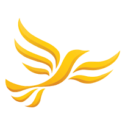
Liberal Democrats
The Liberal Democrats are a centre-left, pro-European, political party, colloquially referred to as the Lib Dems. Recently on an electoral roller coaster, the Lib Dem vote share declined from 23% in 2010 to 8% in 2015, and 11% in 2019. Lib Dems receive their highest support from 30-39-year-olds.Read More
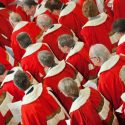
Life Peers
Life peers are elevated to the peerage by the Monarch in accordance with the advice of the Prime Minister. They comprise the 'great and the good' of the day characterised by an expertise and experience in a particular field, alongside an increasing number of former political advisors and ex MPs.Read More
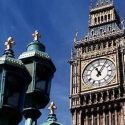
Lobbying
Lobbying is a catch-all term to describe 'special interest' groups and their tactics to gain influence in the political process,. As former Prime Minister, David Cameron, has discovered, the influence of lobbyists is said to be at its greatest, when their activities go 'largely unnoticed by the public'.Read More
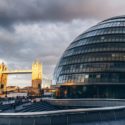
Mayor of London
The Mayor of London is responsible for transport, police, civil defence and fire services, planning, economic development and wealth creation, social development and the improvement of the environment in Greater London. In 2020/21, the Mayor earned a salary of £152,734.Read More

Mental Health Act
The Mental Health Act is the central piece of mental health legislation that lays out the circumstances that justify people being 'sectioned' in England and Wales.Read More

Ministerial Code
The Ministerial Code requires Ministers to uphold the seven principles of public life: selflessness, integrity, objectivity, accountability, openness, honesty and leadership.Read More
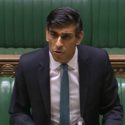
Ministerial Statements
Ministerial Statements are either delivered in writing, or orally in person by the relevant Government Minister, appearing at the Dispatch Box in the Commons Chamber.Read More

Ministers of the Crown
Members of Parliament and Peers appointed by the Prime Minister to the Government are known as Ministers of the Crown. All Ministers, of whatever rank, have a Private Office of four or more civil servants assigned to him or her on appointment.Read More

Modern Slavery Act
The Modern Slavery Act introduced tougher penalties on the perpetrators of modern slavery, as well as more extensive support for its victims. At the time of its introduction, it was suggested that as many as 13,000 people were trapped in forced labour in the UK. Read More

